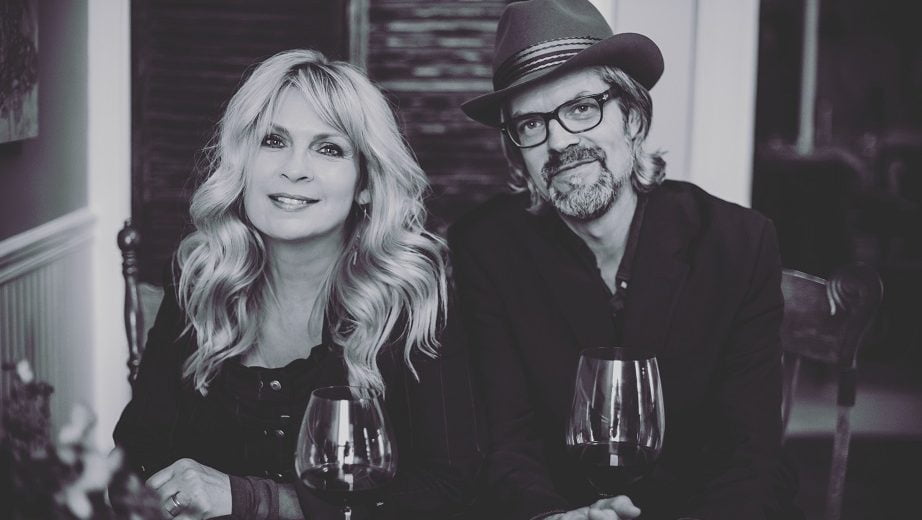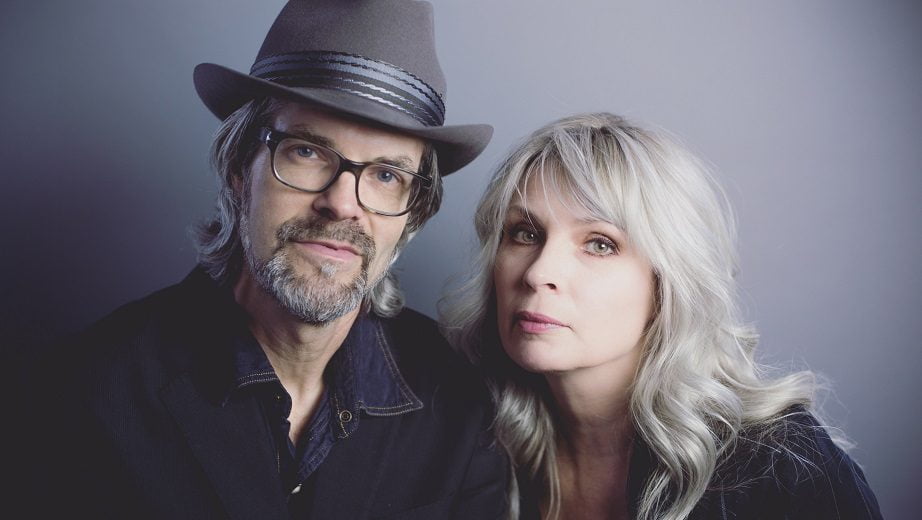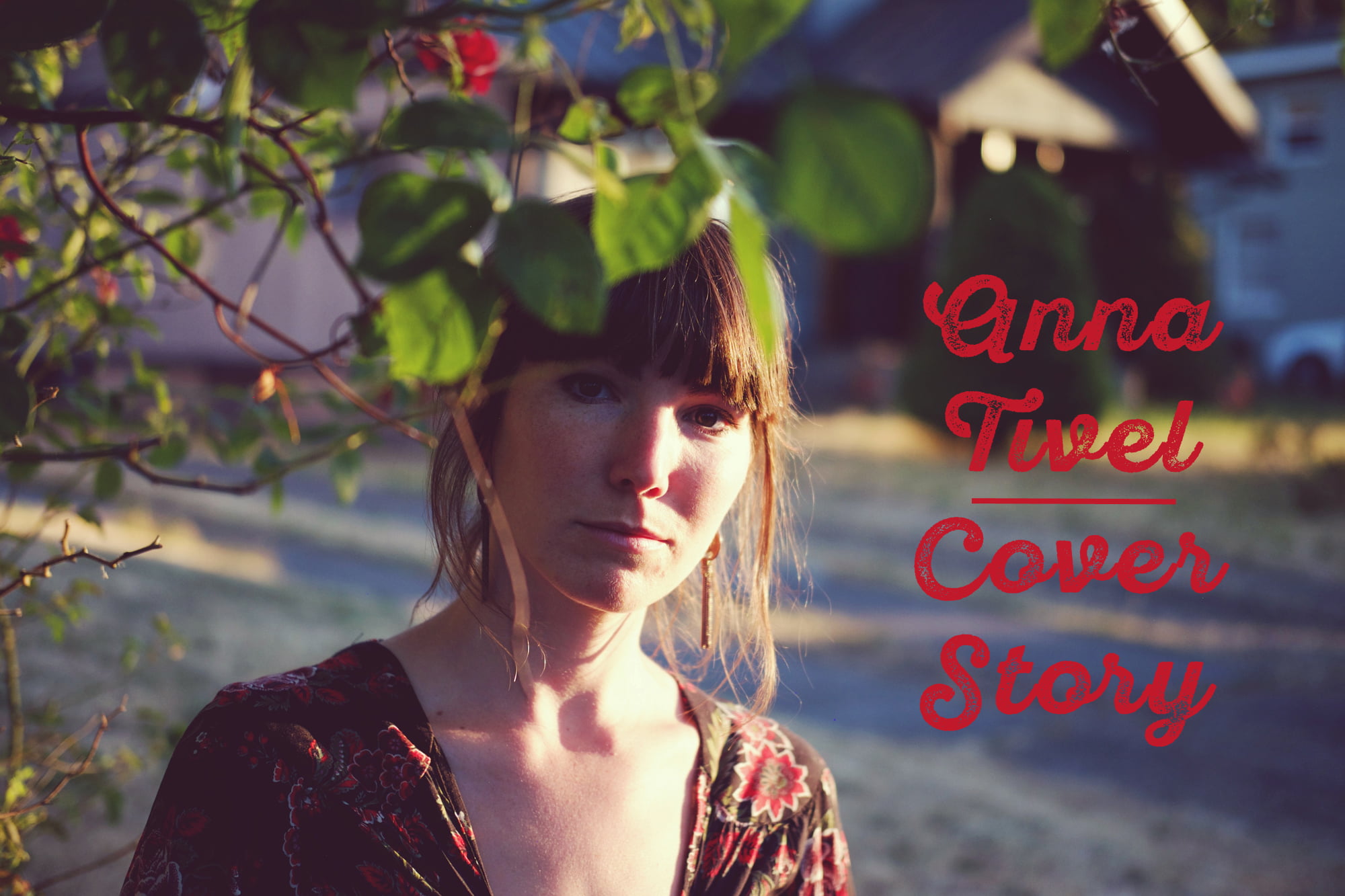In the 30 years since Karin Bergquist and Linford Detwiler made their debut as Over the Rhine, the husband-and-wife duo have established themselves as thoughtful storytellers painting cinematic scenes with their poetic lyrics, pastorally beautiful soundscapes and Karin’s sultry vocal delivery. On Love & Revelation, Bergquist and Detwiler take a nuanced approach, exploring grief as it relates to saying goodbye to loved ones and questioning what it means to hold on to hope as an American in 2019.
BGS: Love & Revelation begins with “Los Lunas,” a song about saying goodbye to a longtime love. That theme of dealing with loss seems to open up and run throughout the album.
Detwiler: A lot of what we’re processing on our new record is this idea that certain things are carried with you for a lifetime. The record opens with the words “I cried.” It sort of tips our hand to the fact that there’s a fair bit of grief on this record. When I mentioned that to my 87-year-old mother, she said, “Well, Linford, that sounds like the Psalms.” All of us like to sort of tout our roots and older music that we’re listening to. I like the fact that my mom immediately went to the oldest songbook that I know of, which would be The Psalms in the Old Testament and immediately began talking about how so many of those songs and poems begin with some kind of lament.
The lyrics of “Los Lunas,” like so many Over the Rhine songs, have a cinematic quality, though the specific details of what led to these two people parting ways in that song isn’t clear. Other songs’ meanings seem to open up after repeated listens. They paint pictures that don’t necessarily solidify into something that can be explained using literal description. How do you pull that off?
I don’t like listeners to feel lost and sort of at sea when they’re listening to our songs. I like them to have some sense of what they’re participating in. [Laughs] That being said, our friend Joe Henry talks about “abiding the mystery” and sort of welcoming and recognizing the mystery that’s part of the process and art of songwriting. There is something on an intuitive level that’s sometimes being communicated.
As somebody that’s marking 30 years of writing, recording and life on the road now, I do find myself trying to simplify my writing. What is the most concise, direct way I can break a heart wide open? [Laughs] I hope our songs are like that. There’s something immediate that invites anybody on any level to enter in and begin participating, but I hope there’s some fine print in there, too, where you have to work a little harder.
There’s a line in “Let You Down” that describes grief as “love with nowhere to go,” which really stopped me in my tracks. What inspired that concept?
I was thinking about some friends and family members that were struggling. So many of us have been called upon to lay loved ones to rest. We have friends who have lost children or friends and family that are facing chronic illness or some kind of daunting cancer diagnosis. Just from my perspective now, I realize it’s so much more important just to show up and be with somebody and listen. I don’t necessarily come from the orientation that everything can be fixed.
So, that concept of grief being a kind of love with no place to go, that’s a conversation I’ve had with people that have lost children. There is this sense of holding this love for somebody and not knowing really what to do with it. At this point, if you lose a child, that’s not something that you should get over. You should carry that with you. That’s part of your life experience. That’s something that you’re going to think about every day.
Another thing about “Let You Down” is you, Linford, are singing a full-on duet with Karin, which I don’t think I’ve heard before on an Over the Rhine album. You’re also singing together on “Betting on the Muse.” What led you to step out as a vocalist after all these years?
I had a real stumbling block about singing. I didn’t like my voice. I’m sure some smart therapist could help me figure out where the seed of that was planted. It’s not like I didn’t want to sing, necessarily. I just didn’t enjoy it, and it didn’t feel good. So, Karin was very patient with me and encouraged me for years to remain open to the idea of singing more.
I remember five or six years ago, there was a little bit of a breakthrough, and I said, “Well, actually, when I sing for any extended period of time, I have some physical pain.” She said, “Well, why don’t you try singing through that and just see what’s on the other side?” I accepted the fact that maybe something painful was part of this process, and at some point, I began to let go of some of that and began to tentatively sing some harmony with Karin. It’s so amazing to sing harmony with somebody.
Karin wrote the title song, “Love & Revelation,” which has a very propulsive feel to it. Lyrically, it conveys a belief that even with all this grief, hope can still break through. Tell me about creating the music to complement those lyrics.
When Karin and [drummer] Jay Bellerose began sort of leaning into the song in the studio, we all just sort of backed away slowly because it felt like something so vivid and complete was happening, which is the voice, acoustic guitar and drums. So, I thought it was a powerful moment on the record. It’s very unadorned. It’s kind of that righteous parade and Karin’s voice, and that’s it.
I think a lot of Americans are feeling a little off balance, to put it mildly, and feeling the need to be sort of vigilant and a very necessary instinct to sort of stand against almost a daily tide of cruelty and deception that’s coming at us. We’re looking around and saying, “Well, this is not who I believe we are.” In this kind of environment, sometimes I think we forget to circle back to what it is we actually do stand for, or believe in. So, Karin sort of planted this reminder that actually it comes back around to love and revelation. I like that idea of remembering what we’re for.
That’s a pretty evolved way to look at what’s going on in America in 2019. How do you get to that point of making an album that goes beyond just running around screaming with your hair on fire about injustice?
I was not opposed to recording a protest record. Maybe on some level it is, but it’s interesting that the record we really ended up making was a record that acknowledged that we are grieving. It’s a record that acknowledges that people we love are hurting, and it’s engaging that on a heart level. It’s a little bit less about being on the street corner with a megaphone. I did write some megaphone songs, and maybe they’ll come back around. At some point, speaking softly can be just as powerful as yelling.

As always, you and Karin are credited as solo writers on most of your songs, but you seem to be on the same page in grappling with these ideas of grief and hope. Does that through-line in the theme happen organically because you’re living and working together as husband and wife?
We are sharing a lot of these experiences, and our lives feel pretty integrated. After two or three decades of trying to write a good song, eventually I begin to think, well, what I’m really trying to write is a good life. It becomes kind of inseparable. So, Karin and I, yeah, she’s a trusted editor. It’s a real gift to have somebody close by to bounce ideas off of and process ideas with. We are one of them there musical couples. It’s too late to turn back now. [Laughs]
2019 marks the 30th anniversary of your debut album. What conversations is that milestone bringing up for you and Karin?
We’re thinking a lot about sustainability. One thing we’re working on is restoring a historic barn on our old property, and we’re hoping to open our own 200-seat venue in the next couple of years. We’ve begun hosting our own music festival, and sort of inviting this community that have found our music to begin coming to us more. One nice thing about this possibility of owning our own music venue is we could offer some concerts throughout the year where we go back and take a fresh look at some of these records we made 20 years ago or whenever.
Some of the songs we still carry with us and play on a pretty regular basis, but we’re not really a nostalgia act. We’ll be very focused on Love & Revelation this year, and that’s the way people who engage our music want it. They are hungry for more.
Photo credit: Kylie Wilkerson



